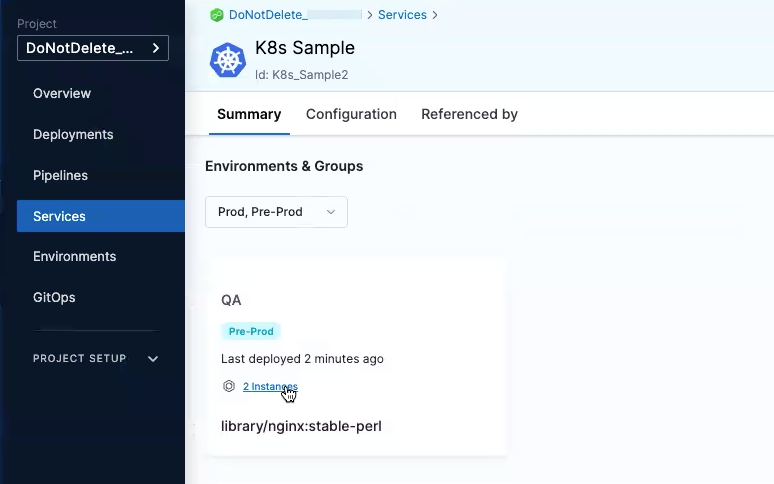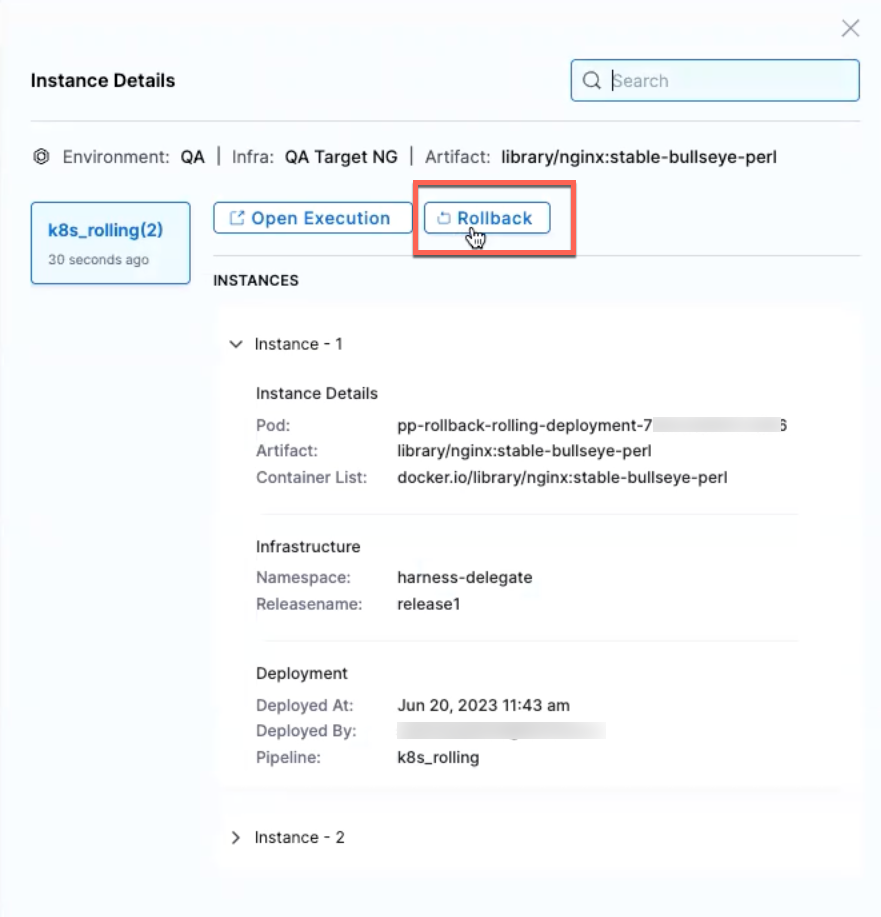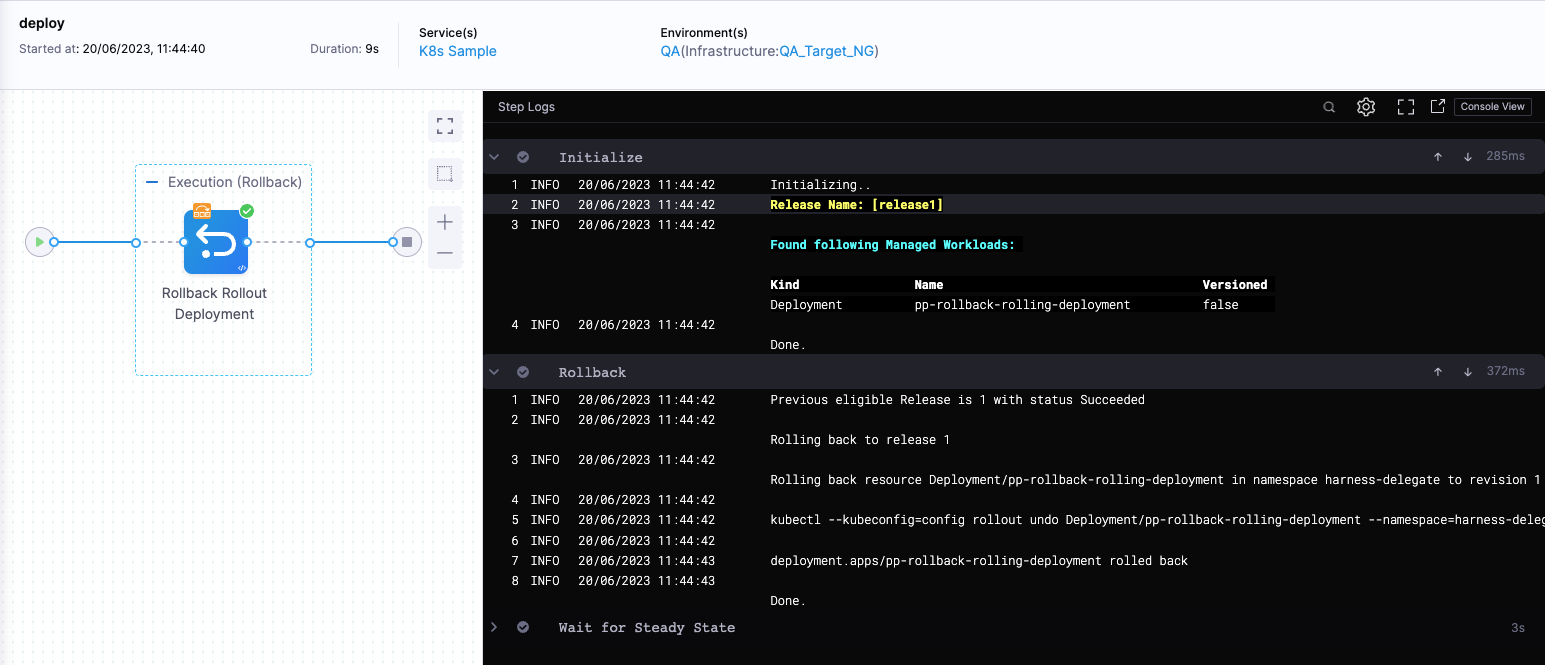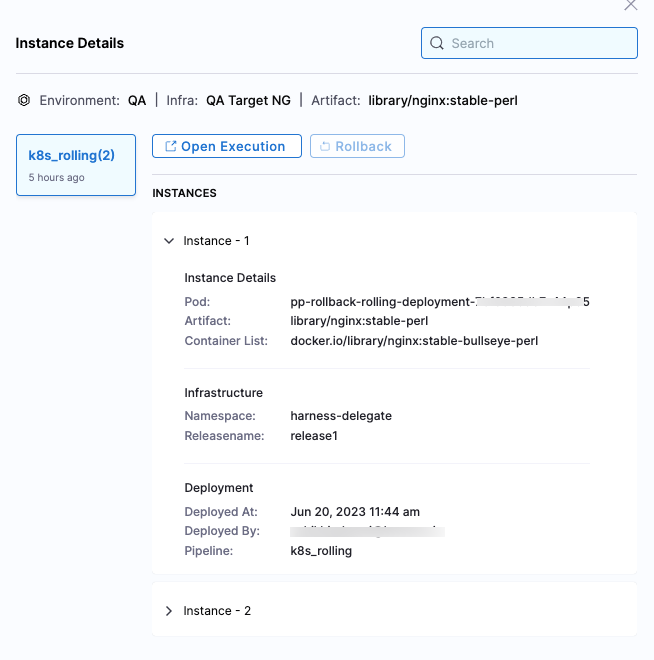Rollback deployments
Currently, this feature is behind the feature flag, POST_PROD_ROLLBACK. Contact Harness Support to enable the feature.
Rollback deployment initiates a rollback of your most-recent successful deployment. This allows rapid, predictable recovery from a deployment that succeeded on technical criteria, but that you want to undo for other reasons.
Important notes
Rollback deployment is currently supported for the following deployment types only:
Kubernetes
Tanzu Application Services (TAS)
Amazon Elastic Container Service (ECS)
Harness anticipates expanding this feature to other deployment types in the future.
You can rollback successful pipelines only. The rollback option is not available for failed pipelines.
Only the rollback steps that are part of the stage can be rolled back.
You cannot rollback the same pipeline multiple times. You can perform rollback if the pipeline is executed again.
If the pipeline configuration has changed between executions, the previous execution YAML is used as reference to rollback.
You can refer expressions used in a step executed during the pipeline execution in the deployment rollback step. The expressions are automatically resolved with values from the original execution in the deployment rollback step.
The stages should rollback in reverse order when rollback deployment is triggered.
Rollback deployments
Harness assumes that you have created a pipeline with multiple deployments so that the rollback step can roll the pipeline back to the last successful deployment when triggered. For more details on creating a pipeline, go to Create your first CD pipeline.
Open your services dashboard.
In Summary, in the Environments & Groups panel, select the deployment you want to rollback, and then select the instances link.
Let's see an example pipeline where the artifacts,
library/nginx:stable-perlis deployed first, andlibrary/nginx:stable-bullseye-perlis deployed next.
In Instance Details, select Rollback.

Here, you're rolling back the deployed instance with the artifact,
library/nginx:stable-bullseye-perlto the previously deployed instance with artifact,library/nginx:stable-perl.In the Rollback infrastructure dialog, select Confirm.
The pipeline execution for rollback stage appears in a new tab.

Once the rollback is complete, your deployed instances will return to the state they were in before the most recent deployment.
